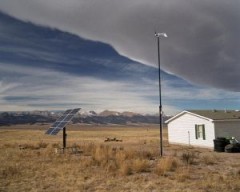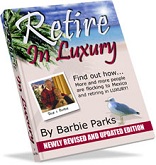Living off the grid can be a way to avoid high utility bills, intrusive homeowners associations and other hassles of modern life. This type of lifestyle means different things to different people. Some would consider off grid living to be freeing yourself from a reliance on power companies and other utility providers, while others take it to mean living without any outside intervention, whether from the government or your neighbors. If you find this idea of free living appealing, consider the following ways in which it can affect your day-to-day life.
What Does off the Grid Living Look Like?
 In almost all cases, those who are living off the grid will invest in a large, rural parcel of land. With a lot of land at your disposal, you will be more likely to be able to grow your own food, and have the space required to live off a generator, solar, or wind power.
In almost all cases, those who are living off the grid will invest in a large, rural parcel of land. With a lot of land at your disposal, you will be more likely to be able to grow your own food, and have the space required to live off a generator, solar, or wind power.
Finding a lot that is appropriate can take some searching, but many find that living in the middle of the country in less populated areas is the best way to set up residence.
This freedom from utilities and the consumer culture is only the beginning of living off this way for some. Those who want to free themselves from the oversight of the government will have to work even harder. In many cases, the only way to truly do so is to avoid most traditional kinds of employment, as it brings with it taxes and other obligations. Instead, many choose to become completely self-sustaining, or they opt for make less than the threshold above which paying taxes is required of them in order to hide from the government.
The Difficulties of Living off the Grid in Modern Life
There can be legal ramifications to not paying income or property taxes, but there are legal precedents that those interested in living off this framework or grid can reference for more information. In addition, this type of living means that you forfeit some of the protections that are afforded by the government, including Social Security and late in life medical care.
Relying on nature for your power and food can also present its own challenges. In a global world, most consumers are used to having almost any food product available to them year round. If you are living in a non rural and urban area, your food availability will be much more dependent on local conditions and seasons. In addition, wind and solar power are not always completely reliable, and some will experience outages throughout their trial period.
Living this way can be a rewarding way of life for those who value self-sufficiency. However, it is also a difficult way to live that brings with it many challenges. If you are interested in trying out such a lifestyle, there are many educational resources available that will guide you through the step by step process of living off the grid.
Return to the Cheap Retirement Page
Click here to Return from Living Off the Grid to Cheapest Places to Retire



